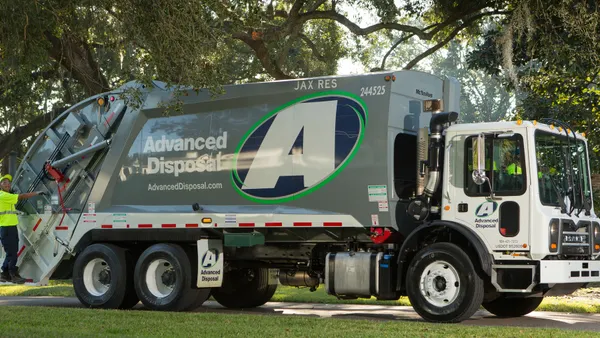Dive Brief:
- After hiring a consultant to study its recycling operations, the Centre County Recycling & Refuse Authority has concluded that it would see minimal benefits from switching to a single-stream collection system, as reported by Centre Daily Times.
- The county determined that making the switch would require buying new trucks and new recycling containers as well as an estimated $3 million facility upgrade. However collection costs would be lower because only one worker would be needed to operate the automated truck.
- The authority claims to currently have a 0% contamination rate but anticipates that would change with single-stream. Officials say that glass — which comprises nearly 20% of the current tonnage collected —would likely have to be dropped from the program if this was adopted.
Dive Insight:
Centre County is in a different position than some other programs weighing the same decision because it currently has a 90% participation rate and is not a profit-driven operation. According to the authority's executive director, recyclables currently generate about $1.4 million in revenue each year but the end goal of achieving "zero waste" in the next 35 years is of higher importance.
Depending on the collection and processing infrastructure behind a program, this can have varying levels of success. For example, Chicago's program is experiencing major contamination issues that have caused it to scale back the types of items collected in some areas. As for the broken glass issue, more recyclers are investing in new equipment and finding new markets for the material.
Recent research from Government Advisory Associates found that 65% of material recovery facilities in the U.S. now do single-stream processing and daily throughput has increased at the same time. Due to the potential for greater efficiency in collection and higher participation rates, this has started to become the preferred choice of many local governments. Groups such as the Recycling Partnership commonly advocate for it when helping communities rethink their recycling programs.











